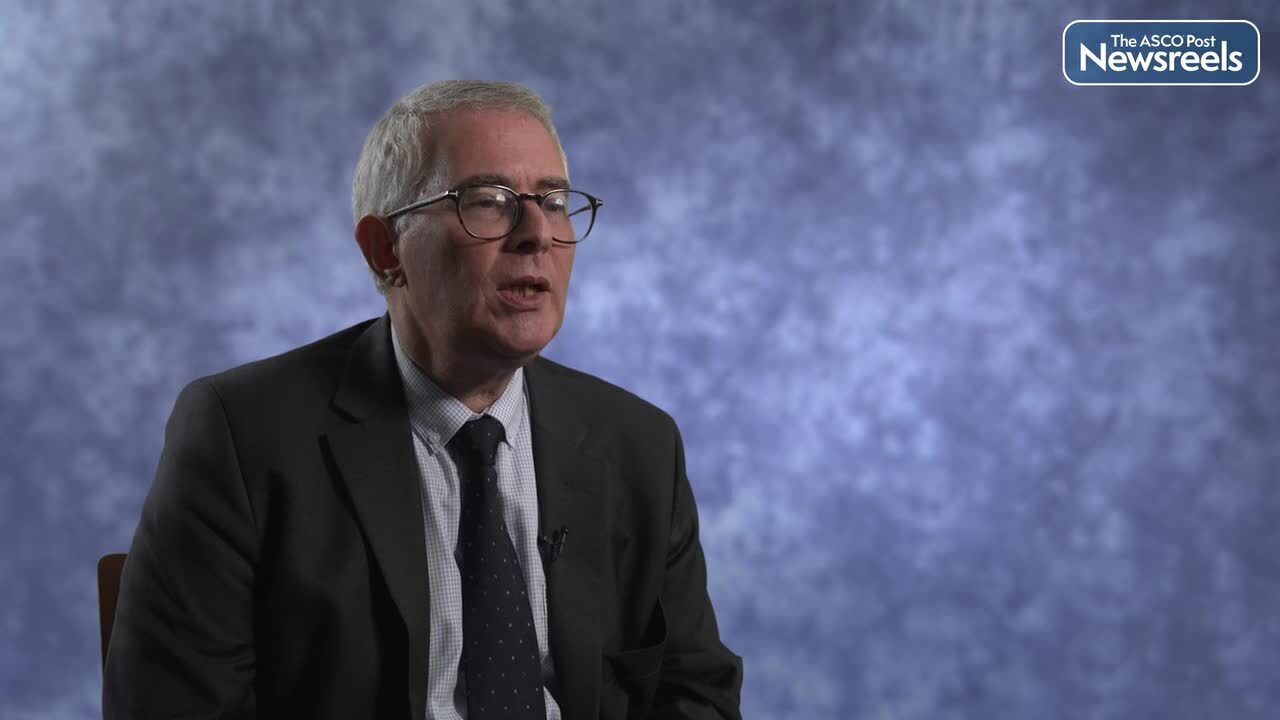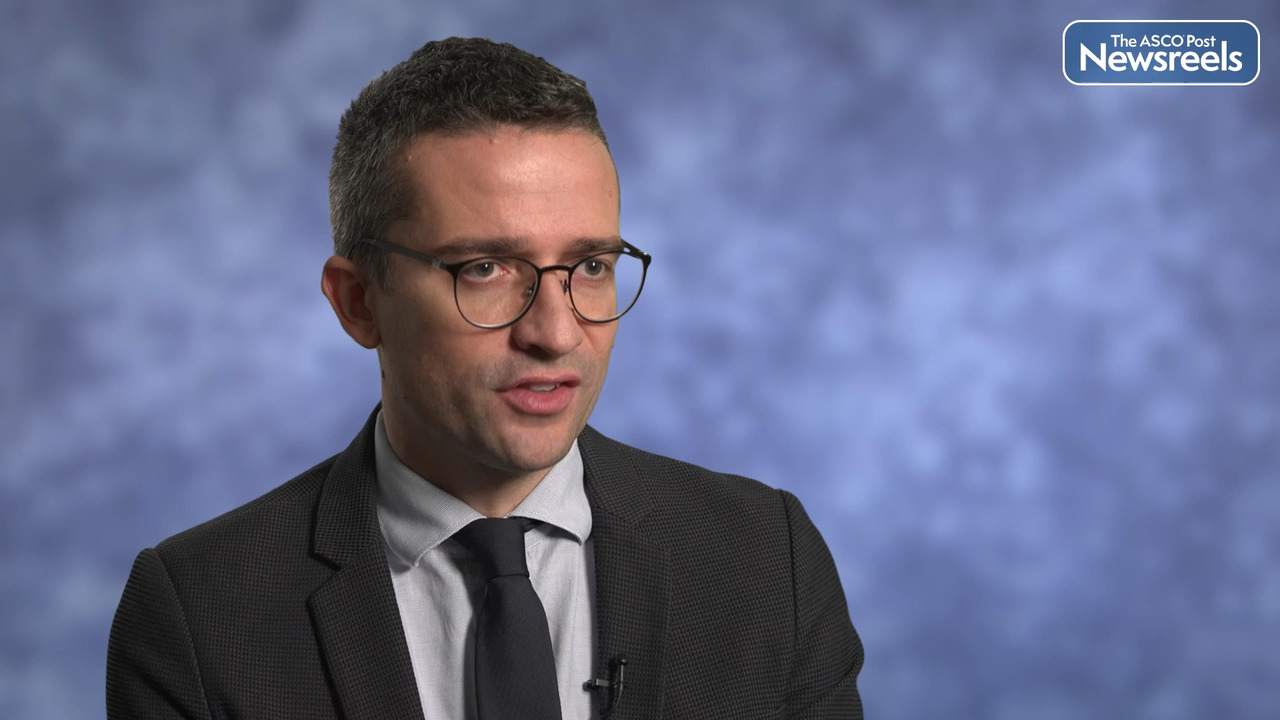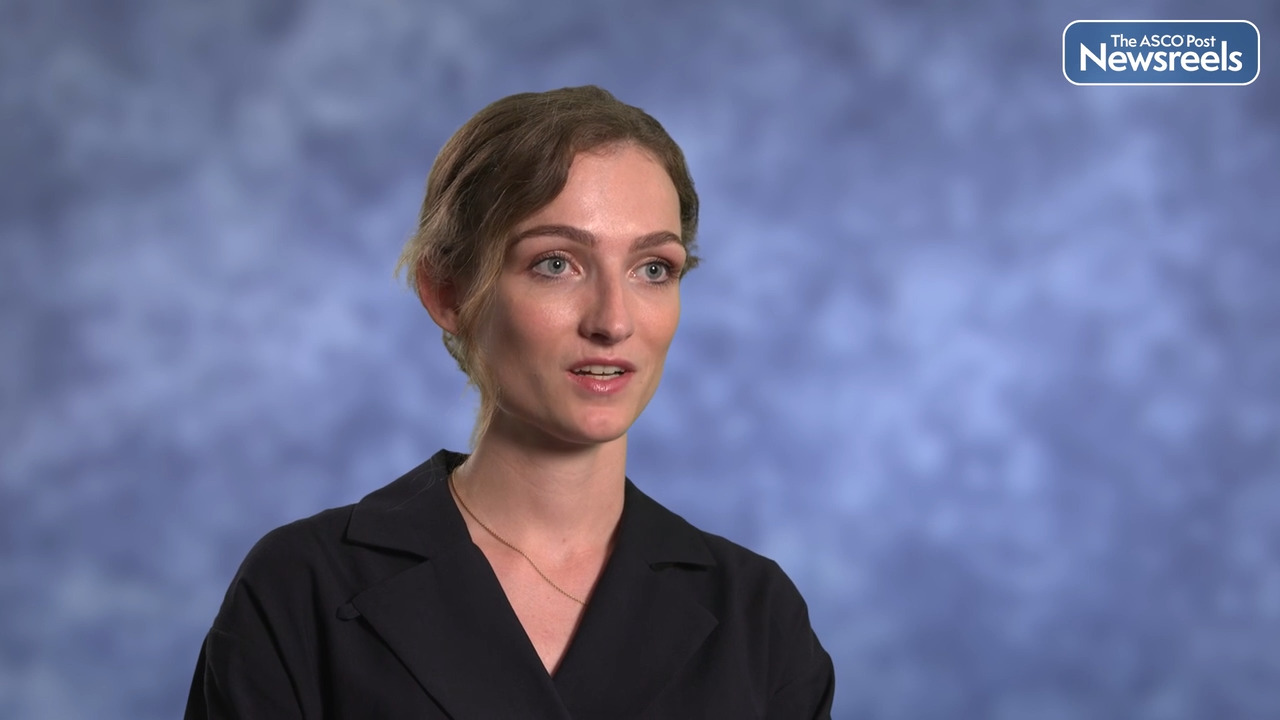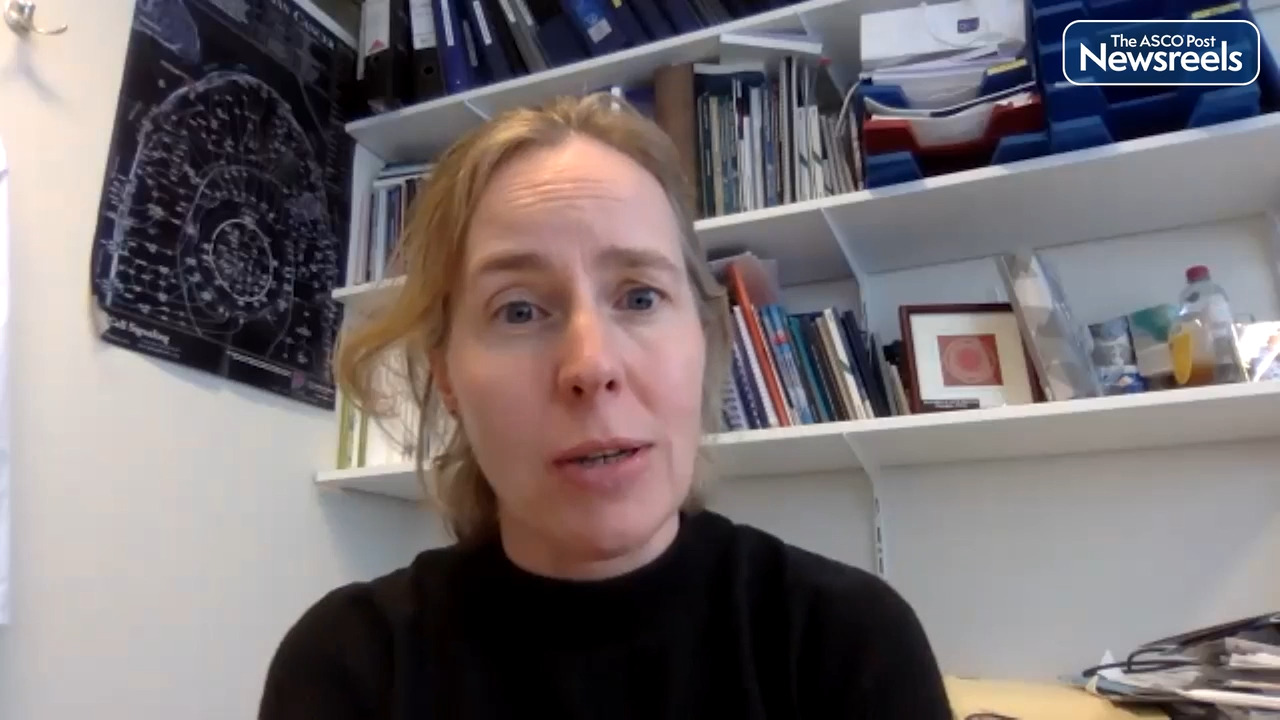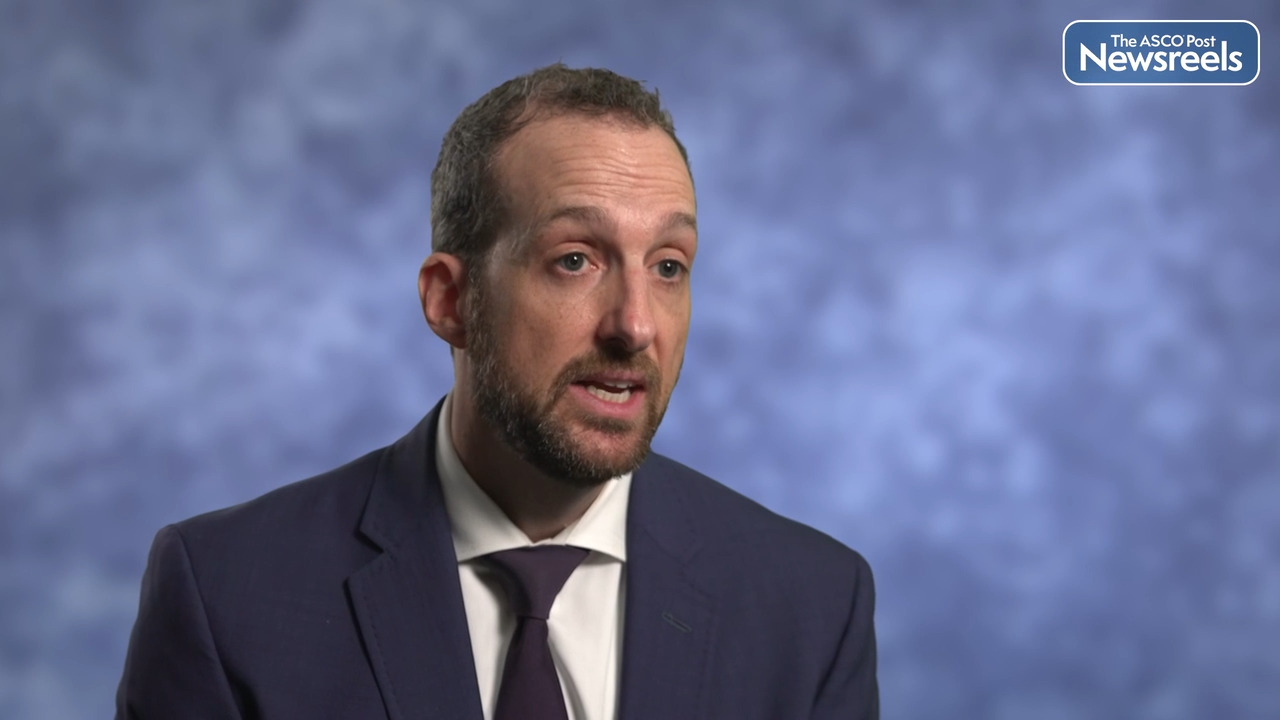Julien Taïeb, MD, PhD, on Colorectal Cancer: Recent Findings on Avelumab vs Standard Second-Line Chemotherapy
ESMO Congress 2022
Julien Taïeb, MD, PhD, of Paris Descartes University, discusses phase II results from the SAMCO-PRODIGE 54 trial, which shows the efficacy and safety of avelumab in the second-line treatment of patients with deficient DNA mismatch–repair microsatellite-instability metastatic colorectal cancer. According to Dr. Taïeb, the study indirectly suggests this population should be treated as soon as possible with an immune checkpoint inhibitor (Abstract LBA23).
Transcript
Disclaimer: This video transcript has not been proofread or edited and may contain errors.
Today we are going to talk about the SAMCO-PRODIGE 54 trial, which is a randomized phase two study dedicated to MSI high metastatic colorectal cancer patients that were treated with an PD-L1 called avelumab or a standout second line therapy. All patients have received only one previous line of treatment and we know that immune checkpoint inhibitors are efficient in the SSI high population in first line. However, there is only one randomized data to date and this is the second one dedicated to second line. So altogether 132 patients were recruited, have treated with avelumab have treated with a standard second-line chemotherapy, plus targeted agent, adapted to their rest status as usual. The primary endpoint of the trial was PFS and the patients were stratified for age ... mutation and number of stats. What we have seen in the result is that the primary endpoint is rich PFS is better in patients treated with the immunotherapy than the one treated with chemotherapy with a targeted agent.
And what happened is that the curves are crossing several time, so it doesn't allow us to think with medians and as a ratio as usually, but we had to use the Q and chin test that is adapted when the shape of the curves is this way. What we can see also is that some patients are immediately resisting to immunotherapy. Some others are resisting within one year, as it was the case in the keynote 177 first line study, and that when the patients are controlled for several months, they are controlled for a very long period of time with approximately 25 to 30% of the patient controlled for more than two years. In this second line setting where generally overall survival are around one year or less. Concerning tolerability, what we have seen is that avelumab is better tolerated than chemotherapy with have less grade three four toxicities, 30% instead of 50% globally.
So it validates the use of an NTP DL-1 or PD-L1 in second line treatment for MSI high colon cancer. However, the primary and secondary resistance occurring during the first care being more important in this trial than in the first line trial. We can say by cross study comparison, but that probably the best. The sooner is the better, and we have to treat this patient as soon as possible. Altogether this is a positive trial that will help us to find a treatment and have scientific data if we see a patient MSI High that has not been previously treated with immunotherapy in second line.
Related Videos
The ASCO Post Staff
Gérard Zalcman, MD, PhD, of France’s Bichat-Claude Bernard Hospital, Assistance Publique–Hôpitaux de Paris, discusses phase III results from the IFCT-1701 trial, which explored the questions of whether to administer nivolumab plus ipilimumab for 6 months or whether to prolong the treatment in patients with advanced non–small cell lung cancer (Abstract 972O).
The ASCO Post Staff
Matteo Lambertini, MD, PhD, of the University of Genova and Policlinico San Martino Hospital, talks about why oncofertility counseling should now be considered mandatory in the care of young women with breast cancer. Among the treatments he recommends offering are oocyte/embryo cryopreservation (or ovarian tissue cryopreservation in those not eligible for gamete cryopreservation); ovarian suppression with gonadotropin-releasing hormone agonist during chemotherapy; and long-term follow-up to improve the management of gynecology-related issues faced by these women.
The ASCO Post Staff
Marinde J.G. Bond, PhD Candidate, of the University Medical Center, Utrecht, discusses phase III findings from the CAIRO5 study of the Dutch Colorectal Cancer Group, the first such trial in defined subgroups of patients with initially unresectable colorectal cancer liver metastases and left-sided and RAS/BRAF V600E wild-type tumor. The study compared FOLFOX/FOLFIRI plus either bevacizumab or panitumumab (Abstract LBA21).
The ASCO Post Staff
Marleen Kok, MD, PhD, of The Netherlands Cancer Institute in Amsterdam, discusses the initial results from the BELLINI trial, which tested whether short-term preoperative nivolumab, either as monotherapy or in combination with low-dose doxorubicin or novel immunotherapy combinations, can induce immune activation in patients with early-stage triple-negative breast cancer with tumor-infiltrating lymphocytes (Abstract LBA13).
The ASCO Post Staff
Neil D. Gross, MD, of The University of Texas MD Anderson Cancer Center, discusses data from a phase II study, which showed that neoadjuvant cemiplimab-rwlc in patients with stage II–IV (M0) resectable cutaneous squamous cell carcinoma is active and may enable function-preserving surgery in some cases (Abstract 789O).
